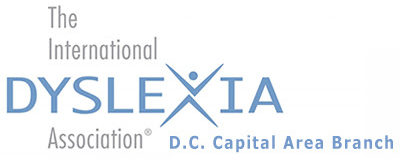Letter from the DCIDA President:
Sarah Irvine Belson, Ph.D.

Welcome to the D.C. Capital Area Branch of The International Dyslexia Association. We have a dynamic and dedicated Board of Directors and we are committed to ensuring that individuals, families, teachers, professionals, researchers, and policymakers are supported in their own dyslexia journey. The good news is that school systems across the country are adopting policies and practices designed to build an infrastructure intended to provide students with dyslexia with the explicit and systematic approaches to reading instruction that they need to be successful. District leaders are implementing screening measures, increasing progress monitoring, and using data-based decision-making. More students than ever who have, or who are at risk for dyslexia, have access to evidence-based early reading instruction, and more teachers are better equipped to teach word reading.
However, because of long-ingrained structural inequities in our educational system, many children with dyslexia will not get the intensive support they need to learn to read. Children of color, multiple language learners, and children born into marginalized communities will continue to be mislabeled with behavior disorders, language delays, and as unteachable. Children who can benefit the most from structured literacy will be placed in Special Education and their progress toward developing the phonological and decoding skills they need to be skilled readers will be suppressed because their test scores will not be counted because special education teachers do not receive access to the science of reading courses in their teacher preparation programs, or because the goals set in their IEPs are unrelated to developing their word reading skills. If we were talking more about dyslexia, then all children would have access to early screening systems, early reading interventions, and intensive foundational reading instruction. But, we are afraid of the word…dyslexia. It is scary to many to try to understand how a child with a neurobiological difference can actually learn to read. It seems impossible that dyslexia might be an answer rather than a question, an opportunity rather than a challenge, and a solution rather than a problem. But DCIDA knows all too well that with a greater understanding of dyslexia, teachers, parents, and educational leaders can chip away at these systemic and cultural barriers to providing ALL children with the early intervention they need.
The trouble is, there are not enough people who know about dyslexia, and know about how to screen and intervene to provide dyslexic students with the intensive early intervention they need to overcome their early reading challenges and have enjoyable school experiences. Although more and more schools are adopting instruction aligned to reading science, we need to double down on our efforts to make sure that the students who can benefit most from early reading can get access to it when it really matters.

